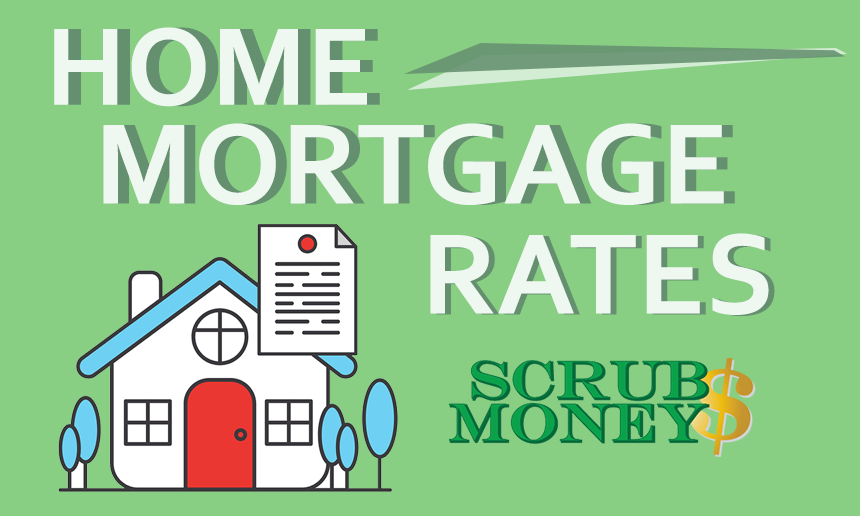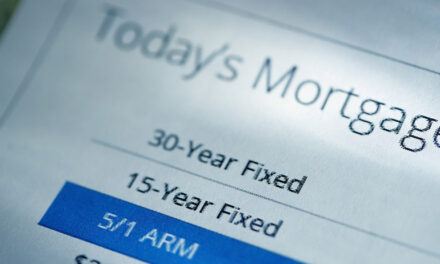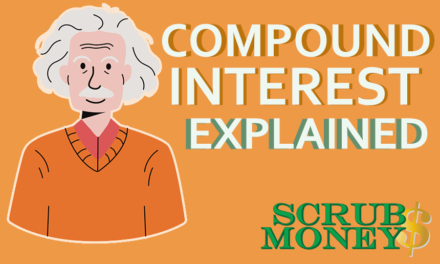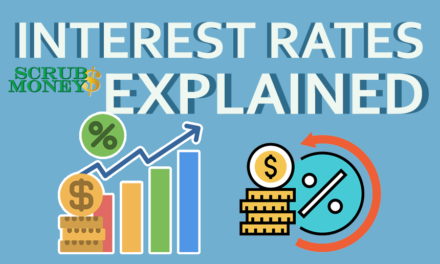Buying a home is one of the most significant commitments you will make in your lifetime. And unless you are born into wealth or win the lottery, a mortgage is a fact of life for most people. It will most likely be the biggest loan you will ever take out with a commitment of up to 30+ years to pay it off. Getting this wrong will cost you.
A number of factors determine home mortgage rates – some you can control and some you cant. Read on to find out how rates are determined and what you can do to get a lower rate.
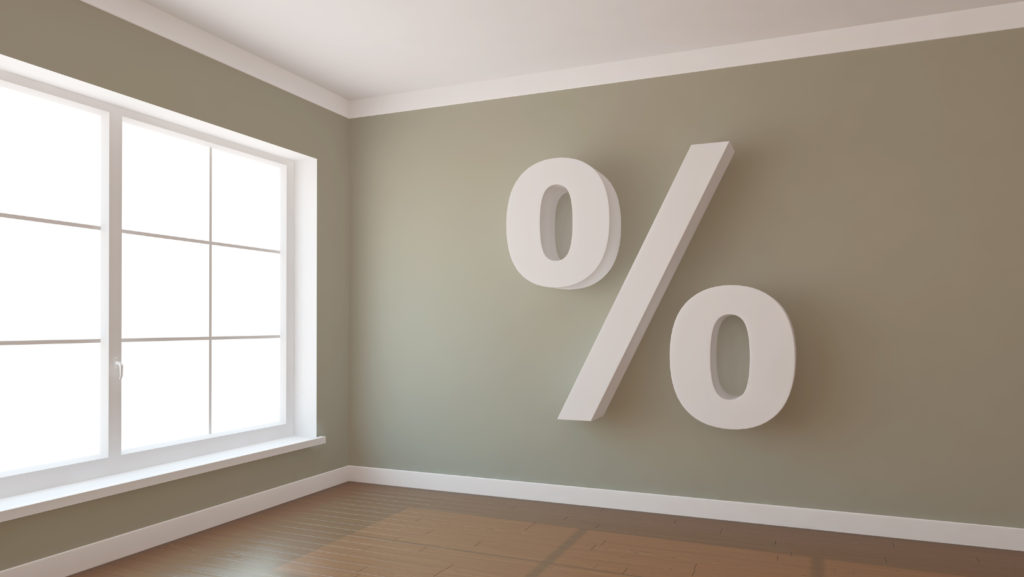
Home Loan Interest and Mortgage Rates
Interest rates make up mortgage rates. Sounds simple enough. What makes up the interest rate you pay for a home loan or mortgage rates in general? ScrubMoney knows it’s all about interest rates mortgage rates.
Home Mortgage Rate Terms
There are many different terms, or length of loan and the terms in which it is paid back. Fixed and Adjustable Mortgage Rate Terms are the most basic design. The most common home mortgage terms include:
- 15-year Fixed Loan Rate (common to pay mortgage off quickly)
- 20-year Fixed Loan Rate (good value)
- 30 Year Fixed Loan Rate (most common)
- 40 year Fixed Loan (low payments)
- 1/5 ARM Loan (Adjustable Rate Mortgage)
You will hear many words when looking for a mortgage that you might not understand. It is important to know some key terminology so that you can make an educated comparison of mortgages.
Interest Rate: the annual cost of the loan as a percentage. For a full rundown of interest rates and the different types read our article “Interest Rates Explained in Simple Terms”.
Annual Percentage Rate (APR): expressed as a percentage it is the annual cost of the loan but unlike the interest rate, it also includes the fees you will pay. The APR shows everything you pay and helps with transparency when comparing loans.
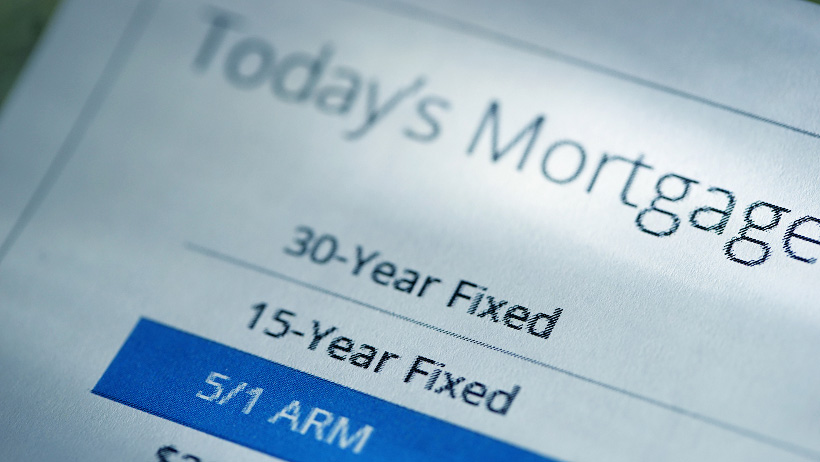
What Factors Determine Home Mortgage Rates?
Many factors determine mortgage rates. Some you can control and others are economy-wide factors outside of your direct control. Let’s start with the factors you can control.
Home Loan Rate Factors You Control
There are two main factors (and a couple of smaller points) that you can control to help you get the best mortgage rate. When deciding to lend you money a bank will be looking to determine the risk to them. Will you likely default on your loan? How much will the bank use if the loan goes bad? If the bank considers you a higher risk they will offer you a higher mortgage rate.
What are the two main factors you can control? Your credit score and the loan-to-value ratio.
Home Mortgage Rates and Your Credit Score
The higher your credit score the lower your mortgage rate and monthly payments. A high credit score tells a lender that you are low risk when it comes to paying back your loan.
If your credit score is low work on raising it before taking out finance or, if you already have a mortgage, improve it with an eye to refinancing. Credit scores from 670-740 are considered good but a credit score of 740-850 is considered excellent and will qualify for the cheapest rates.
Loan-to-Value Ratio for Mortgage Rates
The loan-to-value ratio is the amount you borrow compared to the value of the home. It is a percentage of the value of the home that you are taking out as a mortgage. If you buy a $200,000 home and put down $40,000 then your loan-to-value ratio is 80% as you are borrowing 80% of the home’s value.
Anything higher than an 80% loan-to-value ratio is considered high and likely to attract higher mortgage rates. If your credit score is also lower you will usually have to take out mortgage insurance. These all add to your monthly repayments.
We mentioned early that there were a few other things you can do to get a better mortgage rate. While your credit score and the loan-to-value ratio are the most significant things you can control doing these small things will also help reduce your rates.
- Shop around. There are so many lenders in the market today, and with the internet, it is easy to get an idea of the products on offer.
- Consider locking in a fixed rate for a period of time. Read about fixed versus variable interest rates.
- If possible consider a shorter-term mortgage. A shorter term is often considered less risky than a longer-term loan. The monthly repayments are higher though so weigh this depending on your circumstances.
Home Loan Rate Factors You Cannot Control
How interest rates are determined involves a lot of factors that you don’t directly control. Knowing about them and understanding them can help you. It lets you know good times to borrow and what might be coming up.
Inflation and Housing Mortgage Rates
When inflation rises, interest rates tend to rise too. The economics behind it is complex but put simply when prices rise due to inflation the buying power of the dollar decreases. Lenders then need to earn more money and raise their mortgage rates.
Overall Home Loan Rate Trends
The official interest rate is set by the Federal Reserve in relation to overall economic trends. This in turn, normally sees a change in mortgage rates as banks follow suit. If the economy is looking like it will slow down, then housing interest rates tend to fall. If the opposite happens, the economy is growing fast then home loan interest rates will rise.
Mortgage Rates, Unemployment and Job Growth
In times of mass layoffs and high unemployment, interest rates tend to fall. This is normally accompanied by decreasing inflation and a slowing economy.
All these factors play into supply and demand. In a high-growth economy with low unemployment, more people will want to borrow and interest rates will rise as a result. If the economy needs a boost and not many people are borrowing then lower interest rates will cause people to borrow and spend and boost the economy.
As you go out and look for a mortgage be sure to educate yourself and do what you can to secure a lower mortgage rate. It will mean more money in your pocket.

